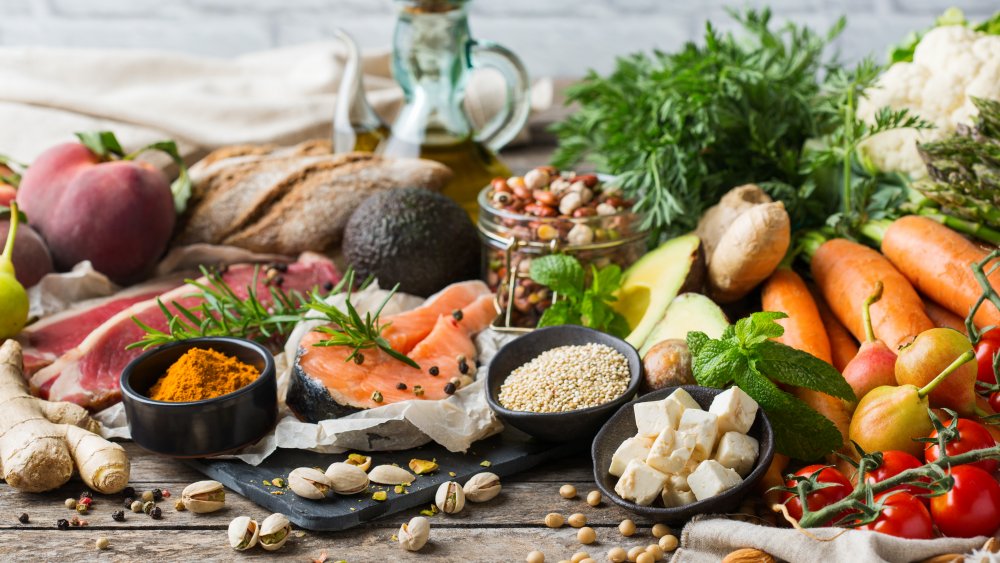Here's Why You Should Consider A Flexitarian Diet
Several diet plans exist for health-conscious, such as the ketogenic diet that focuses on eating foods higher in fat and low on carbohydrates, and the intermittent fasting plan that encourages its practitioners to fast for 16 hours, usually at nighttime to encourage fat burning. There's a new entry in the diet stakes: the Flexitarian diet. It's exactly what it sounds like: You're encouraged to stick to a mostly plant-based diet and occasionally indulge in meat in moderation.
According to a piece by NBC News, the Flexitarian diet heavily relies on plant-based food items such as vegetables, fruits, nuts, pulses (beans and legumes), and whole grains, but also allows its practitioners to eat small amounts of meat, dairy and other animal-based food. The method works well if your goal is to be healthier overall without severely restricting yourself to particular foods. This flexible eating plan lets you have the best of all worlds without making you rely on unhealthy options; it's a convenient way to tweak your lifestyle without embracing major changes.
The diet follows a balanced approach
The Flexitarian concept first started showing up back in 2009 (via Very Well Fit) and was promoted by dietitian Dawn Jackson Blatner who wrote the book about it: The Flexitarian Diet: The Mostly Vegetarian Way to Lose Weight, Be Healthier, Prevent Disease and Add Years to Your Life. In her book, Blatner explained that she wanted to consume mostly vegetarian foods because of their health perks, yet also allow herself to occasionally enjoy treats like barbecue hamburgers. Being a flexible dieter allowed her to reach her goals and stay healthy without giving up on her indulgences.
What works in the diet's favor is the fact that it isn't restrictive. It focuses on the positives — adding more plant-based foods, and enjoying meat in moderation. As illustrated by Eat This, Not That!, the diet has economic benefits as well — you'll be spending less money on meat while reaping the health benefits of eating mostly plant-based meals. And guess what? The environment greatly benefits as well, thanks to the benefits linked to plant-based protein.
The key to embracing this diet is to initially come up with easy tweaks, such as trying delicious overnight oats recipes and preparing more homemade meals. Remember to stock up on groceries in advance, and check out easy and delicious vegetarian dishes to keep you pumped during the week.

